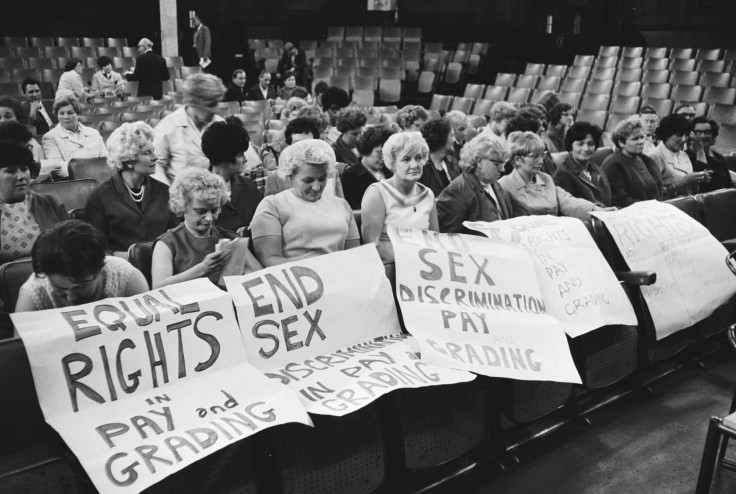What Is Feminism? A Look At Why Feminists Don't Want To Call It 'Humanism'

As Women’s History Month comes into full swing this month starting Wednesday, the understanding of what feminism is may seem confusing for some. Defined by Merriam-Webster as the theory of equality between the sexes, feminism is rooted in centuries of history throughout the U.S. and the rest of the world.
The modern feminist undertaking started during the Age of Enlightenment and eventually led to the women’s movement in the U.S. at the Seneca Falls Convention of 1848. Centered on women fighting for equal freedom and access to resources, feminist advocacy has a “nuanced background in social movements, as well as in scholarship,” Wellesley College's Department of Women's and Gender Studies visiting lecturer Shannon Weber told International Business Times in a phone interview.
Feminism, however, has also received a bad reputation throughout its history. Those championing the cause have often been cited as “man-haters,” receiving backlash for their activism as a result of the actions of the most radical feminists. Many celebrities like Demi Moore, Madonna and Sarah Jessica Parker have claimed their identification as “humanists” rather than “feminists,” as a means to disassociate from a negative connotation of the word.
But humanism – generally defined as prioritizing humans rather than the supernatural – is not feminism. Feminism was borne out of a political movement while humanism and secular humanism, for example, have a more religious background.
“A concern with replacing feminism with humanism would be: would the focus on gender be lost? Because if you’re only talking about ‘the human’ and the ‘humankind’ overall, that ends up not necessarily having a specific gendered lens from which to analyze power, privilege and oppression,” Weber said.
The stigma attached to feminism characterizing its participants as irrationally angry or out-of-control is part of the strategy behind associating with humanism instead of feminism: “There’s a lot of women who want to distance themselves from that, which I think is unfortunate because that’s an inaccurate caricature of what feminism is. It definitely detracts from the point of what it means to be a feminist,” she added.
Some women minority groups have also strayed from identifying as feminist. However, instead of denouncing the term because of its stigma, these women have not felt welcomed by the movement throughout its history.
“Because feminism has been exclusionary to various groups of women, some women don’t feel comfortable identifying as feminists for that reason, as well,” Weber said.
© Copyright IBTimes 2024. All rights reserved.






















